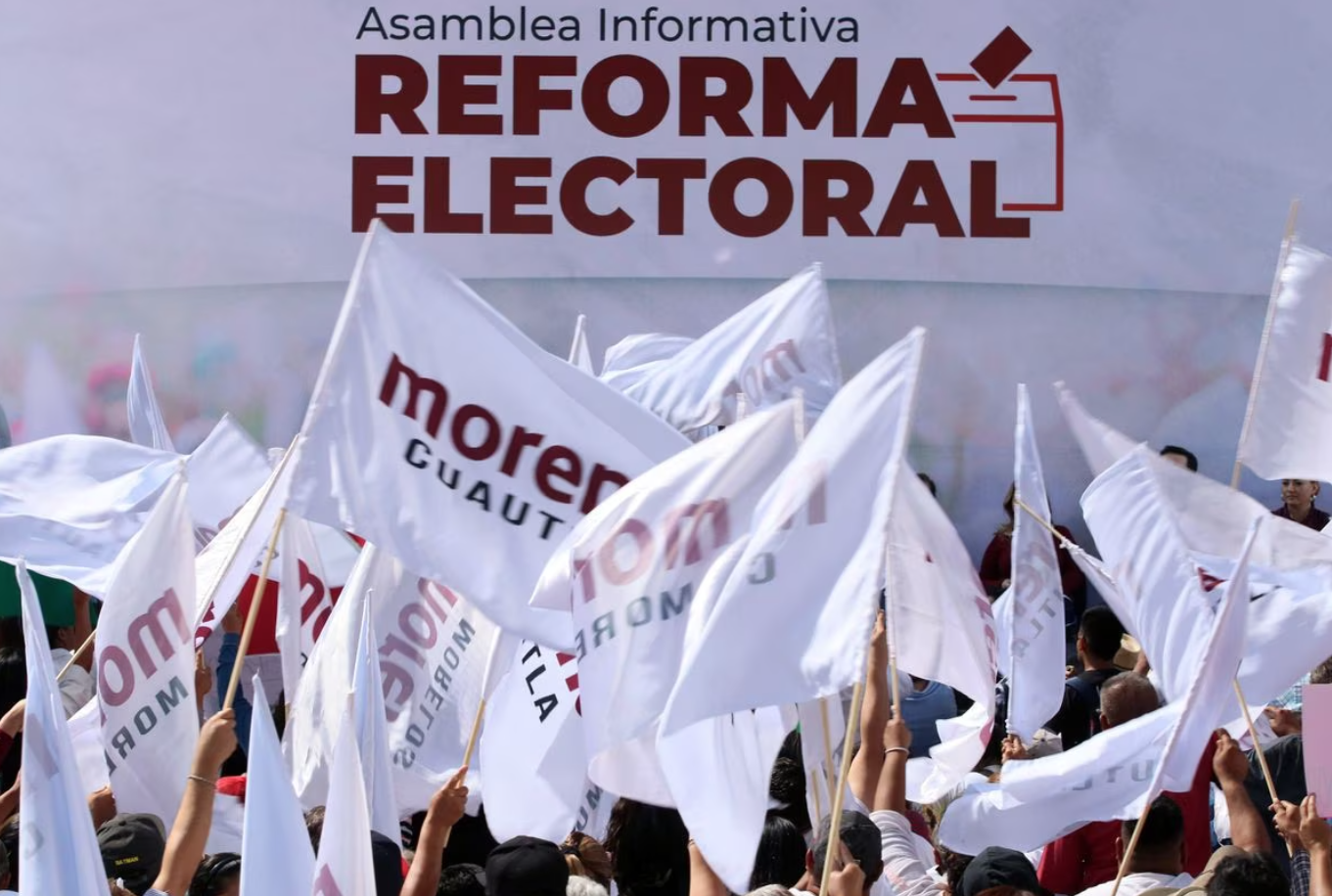On February 26, the National Civic Front and several national and regional social organizations called to occupy the public square. The objective was to speak out against the so-called Plan B, the electoral reform of President Andrés Manuel López Obrador, which seeks to achieve what he could not through his constitutional reform initiative. Basically, what the president seeks is to control the election to benefit his party in the 2024 presidential elections and the renewal of the Congress of the Union.
The call activated mobilizations in more than one hundred cities in Mexico and abroad (Paris, Los Angeles, Washington, Madrid, Lisbon, Madeira, etc.) and it is estimated that participants will be more than one million Mexicans. The objective was three principles: the National Electoral Institute (INE) will not be touched, my vote will not be touched and the Supreme Court of Justice will decide on the constitutionality of Plan B.
President López Obrador intends, through a reform of the electoral law, to reduce to its minimum expression of INE’s structure and competences, in order to obtain advantages over the opposition and keep the Presidency for the Morena Party and its electoral allies. By controlling the electoral institute and reducing its constitutional competences, it could have a more significant margin of maneuver in elections that are predicted to be very competitive.
This strategy of constitutional rupture was endorsed by the absolute majority that Morena and its legislative allies have; however, it was not enough to have the qualified majority (two-thirds plus one in both chambers) required by the Constitution, in order to carry out reforms to the Magna Carta.
In this context, President López Obrador decided to take a step back to move two steps forward through reforms to secondary laws, among them, the electoral law. This led to appeals and constitutional controversies from the opposition, and now it is the Court’s turn to rule on the constitutionality of these reforms.
There are two aspects (both have to do with the context of the situation) that are fundamental. One is the recent appointment of the first female president to this constitutional body and the ministers’ decision that the so-called Plan B will not be applied in next summer’s elections in the states of Mexico and Coahuila.
The first becomes relevant because the president’s candidate, Justice Yasmín Esquivel Masso, not only did not obtain the votes of her peers to reach the highest position but faces strong public questioning for having plagiarized her undergraduate and doctorate thesis, which could disqualify her from her position.
The second issue is that the Court appointed as president Minister Norma Piña Hernández, who had one of the lowest approval ratings of the candidates presented by López Obrador before she was elected.
Although the Court is composed of eleven ministers, its public and symbolic messages that it will be respectful of the Constitution and that it will not go beyond what is established by law are important.
Now, the matter is in the field of the ministers of the Court, and they are the ones who must resolve the constitutional appeals and constitutional controversies regarding the reforms of six secondary laws and define if they have constitutional support. The Constitution and the electoral law establish that the electoral laws cannot be changed ninety days before the beginning of the electoral process, which is officially scheduled to be held on September 2 with the installation of the general council of INE and the issuance of the call for the constitutional elections for the 2023-2024 period.
Constitutional specialists agree that once Plan B is approved by the Congress of the Union, President López Obrador has 30 days to publish it in the Official Gazette. And once published, the Court proceeds to review the constitutionality of the six secondary laws reforms and would have until June 2 to resolve the constitutional appeals and constitutional controversies on the final. In other words, the electoral institute and the political parties will have to review their allegations to present them immediately to the Court, which will have to work at full speed to decide, based on the Constitution, whether next year’s elections will be held under the current legislation or with the addition of Plan B.
In short, Mexico is currently walking down an avenue marked by a political strategy that could break the constitutional order, and this has the country on edge. The national destiny depends, as never before, on the decision of the eleven ministers of the Court. While this is happening, citizens have decided to take to the streets to change the regressive intent of our democracy and its institutions.
*Translated from Spanish by Janaína Ruviaro da Silva













